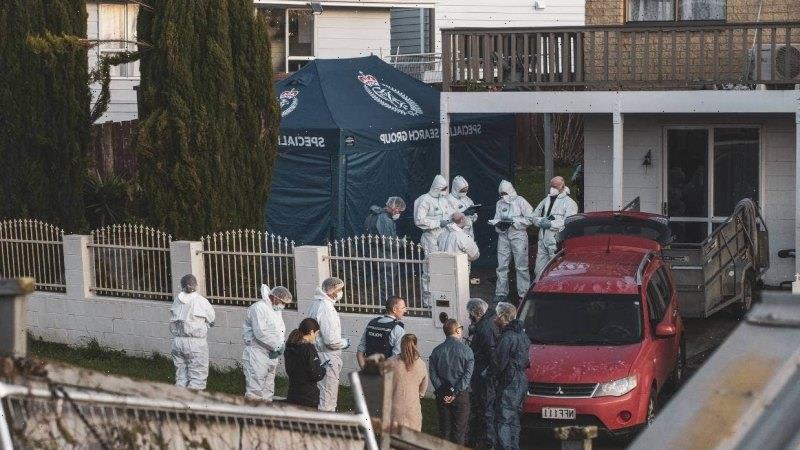After three solemn features centered on the ramifications of war — not just in her home country of Bosnia but, in 2017’s “Never Leave Me,” Syria too — writer-director Aida Begić leaves political conflict behind in her fourth. “A Ballad,” however, charges no less abrasively into the emotional battleground of a young woman’s separation from her long-term partner, and the personal, legal and familial skirmishes that hamper her fight for independence. Very loosely inspired by the 17th-century South Slavic ballad “Hasanaginica,” Begić’s ambitious, jaggedly structured film brashly updates its moral of female sorrow and subservience to far more modern ideals of feminist resolve and rejection of the patriarchy.
Not every one of the film’s swirling subplots lands, just as not all its social and philosophical lines of inquiry come crisply into focus. But this is the most distinctive and artistically exciting work yet from Begić, who won Cannes prizes for her first two features, 2008’s “Snow” and 2012’s “Children of Sarajevo,” and now for the first time unveils a film in her hometown festival of Sarajevo. That’s perhaps fitting for a work steeped in local culture and lore, though “A Ballad” should travel further on the festival circuit on the strength of its formal and narrative risk-taking. For Begić, the film has been long in the works, having been announced in 2015 before being leapfrogged by “Never Leave Me,” while the global pandemic subsequently diminished plans for a larger international co-production. The end result, however, makes a virtue of its grounded intimacy.
Not that “A Ballad” feels especially intimate or approachable in its opening stages, as Begić hits the ground running with a surfeit of clashing narratives and perspectives, alternated via brisk, blunt cutting, and an agitated, handheld shooting style. Gradually, the chaos clears to center the character of Meri (“Children of Sarajevo” lead Marija Pikić), a mother and homemaker in her early thirties, who has recently split from domineering partner Hasan (Milan Tocinovski) to move back in with her overbearing mother Zafira (Jasna Žalica). Crucially, she hasn’t been able to take her young daughter Mila (Gaia Tanovic) with her; an ugly custody battle looms, with the system seemingly stacked against the jobless, defiant Meri.
Prying middle-aged lawyer and family friend Samir (Slaven Vidak) offers to take her case, but it soon becomes clear that he doesn’t have his client’s best interests at heart: Rather, he’s trying to corner her into marrying him for security, and Zafira, herself a longtime single mother, is all too approving of the idea. Hoping this will somehow all go away, Meri busies herself with other distractions, rejecting Samir’s attempts to fix her up with a stable factory job and, on a whim, pursuing acting auditions instead. This more escapist plan is abetted by a chance reunion with an old school pal, fun-loving hairdresser Adela (Lana Stanišić) — who, among other things, introduces Meri to the cathartic joys of firing a gun just for the hell of it.
The reason for Adela always carrying a gun on her person is one of a few over-complicating elements in Begić’s cluttered, antsy screenplay. As with an entire, aimless subplot dedicated to the criminal dealings of Meri’s wastrel younger brother Kemo (Enes Kozličić), it’s a little too easy to imagine a satisfying cut of this busy, lengthy film that dispenses with it entirely — and that’s before “A Ballad” brazenly pulls off a Brechtian reality flip that places Meri’s plight in a larger context of Bosnian femininity and traditional heroine models. The tragic protagonist of “Hasanaginica” dies of woe after being widowed, married off and separated from her children; Meri, or at least “Meri,” won’t succumb so easily to society’s ingrained misogyny.
This playfully antic storytelling is complemented by a wild tombola of directorial technique from Begić, a filmmaker usually inclined toward poise and naturalism. Here, anything goes, as Erol Zubčević’s grainy digital lensing embraces seasick movement and off-its-axis compositions — occasionally even turning the full 180 degrees in its quest to see things from a different angle. Brash lens flares and artificial back projection abound, the latter in particular when Meri imagines her life as a more glamorous movie of passion and freedom and leather-clad bad boys: The one she’s in, at least, has no shortage of rule-breaking rebellion.
It’s all anchored by performances as earthy and authentic as the filmmaking is flighty and experimental. Always, it seems, one small push away from unleashing the constant scream inside her, Pikić makes Meri’s irrational pivots wholly and sympathetically understandable, while Žalica is quite remarkable as her mother, not merely a meddling nightmare but a woman projecting a lifetime of neglect and loneliness onto children she’s determined never for one minute to leave be. For all its manic and/or poetic interludes, the best scenes in “A Ballad” are its simplest: the plainly observed domestic clashes and peace talks within Zafira’s cramped, dim apartment, culminating in a dining-table conference of such hysterical awkwardness that Meri can’t stop laughing, if only to save herself from crying. Forever hovering between styles, stories, aesthetics and moods, Begić knows the feeling.
Read More About:
Source: Read Full Article


